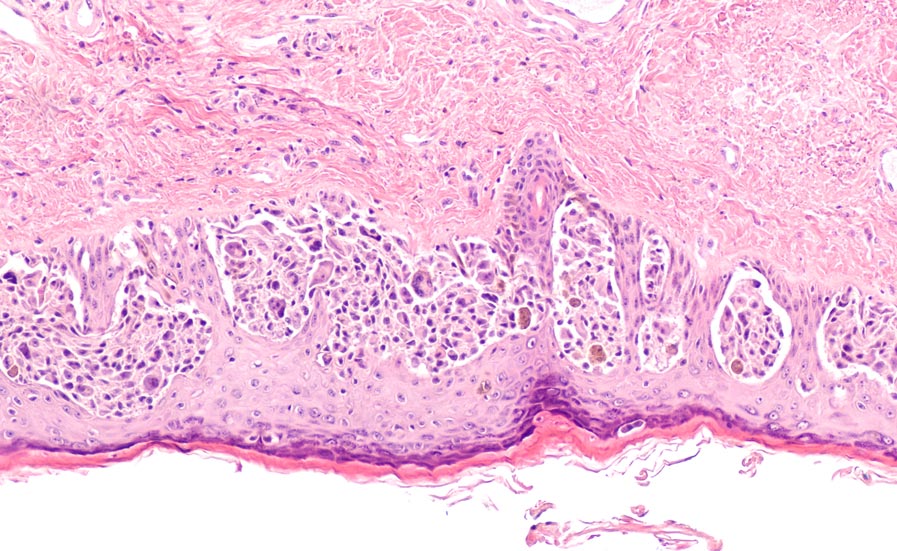Advertisment
ASCO: Neoadjuvant therapy shows superiority for resectable stage III melanoma

ASCO: In resectable stage III melanoma, treatment with the immunotherapies ipilimumab and nivolumab before lymph nodes are surgically removed is more effective than treatment with nivolumab after the removal of lymph nodes.
Researchers reported these findings June 2, 2024 at the 2024 American Society of Clinical Oncology (ASCO) Annual Meeting.
The authors noted that the NADINA trial was the first phase 3 clinical trial in stage III melanoma using neoadjuvant immunotherapy. Neoadjuvant chemotherapy is delivered before surgery to shrink a tumor or stop the spread of cancer and to make surgery less invasive and more effective. Adjuvant chemotherapy is administered after surgery to kill any remaining cancer cells.
“This randomized phase 3 clinical trial confirms data from several early clinical trials that treatment with immunotherapy for melanoma prior to surgery improves outcomes compared to patients receiving immunotherapy only after surgery,” said Michael C. Lowe, MD, Associate Professor of Surgery at Emory University School of Medicine, Atlanta, Georgia.
The investigators enrolled 423 subjects; 212 received neoadjuvant therapy and 211 received adjuvant therapy.
The investigators reported significantly fewer disease-related events among subjects receiving neoadjuvant therapy compared to those who received adjuvant therapy (28 vs. 72 events, respectively).
The researchers estimated that at 12 months, 83.7% of those receiving neoadjuvant therapy would be event-free compared to 57.2% of those who received adjuvant therapy.
Notably, among the subjects with a BRAF mutation, the researchers estimated that 83.5% of people who received neoadjuvant therapy were event-free at 12 months compared to 52.2% who received adjuvant therapy.
For those without a BRAF mutation, the estimated 12-month event-free survival was 83.9% for neoadjuvant therapy and 62.4% for adjuvant therapy.
Most common side effects (grade 3 or higher) in the neoadjuvant arm were infection, diarrhea, abnormal blood counts, rash, fever, and fatigue. Grade 3 or higher side effects appeared in 29.7% of subjects in the neoadjuvant arm and in 14.7% of subjects in the adjuvant arm.
“NADINA shows for the first time that combined neoadjuvant immunotherapy is superior to standard-of-care adjuvant immunotherapy,” the authors concluded.





